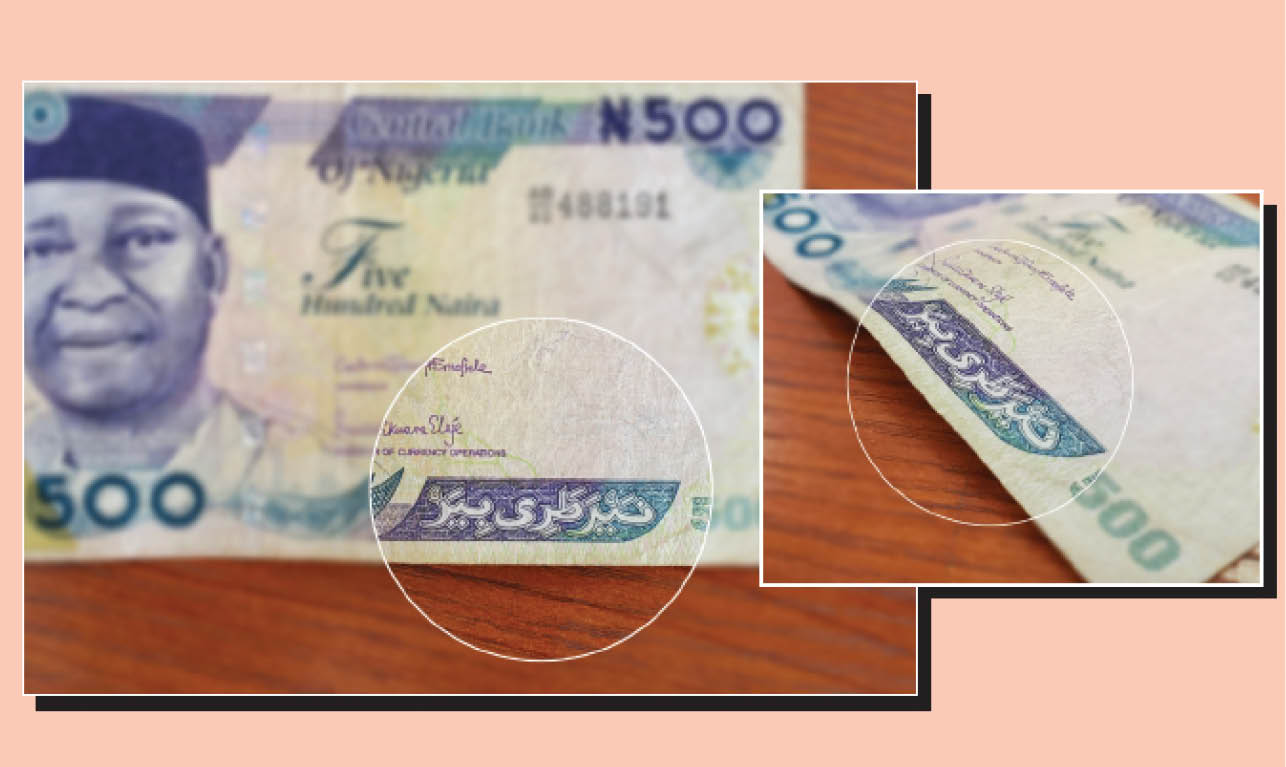In his column of August 16, 2006, entitled ‘“Islamic terror”, Islamophobia and all that”; Mohammed Haruna, among other things, tried to counter the arguments of those who said that the Arabic alphabet on our currencies should be removed because they amounted to the Islamisation of Nigeria. Among the reactions to the column Haruna subsequently published, a short one by Dr. Nowa Omoigui, a US-based cardiologist and amateur military historian, stood out for its rigour and historicity.
About seven months later when the Central Bank of Nigeria redesigned our currencies between 100 and five Naira, President Olusegun Obasanjo and then CBN Governor, Professor Chukwuma Charles Soludo, removed the Arabic inscriptions on those currencies. Subsequently, Haruna wrote in his column on March 7, 2007, entitled “The new Naira notes, Obasanjo, Soludo and Soyinka” that the decision was wrongheaded because, among other things, it conflated Arabic with Islam.
In the light of the recent controversy over the retention of the Arabic inscription on the bigger denominations, a subject I wrote about on these pages two weeks ago, I reproduce below Omoigui’s letter in August 2006 and an extensively abridged version of Haruna’s column in March 2007 because their arguments are as valid today as they were then.
First, Omoigui:
Sir,
I enjoyed reading your piece titled, “Islamic Terror”, Islamophobia and all that,” In particular, I was struck by the whole brouhaha regarding “Islamic inscriptions” on the currency. The Ajami script, of Persian origin, was merely a form of alphabet used to translate some West African languages, such as Hausa, Fulani etc… which is how it got on the Nigerian descendant of the old common colonial West African Currency. Ditto the motto of the West African Frontier Force.
As you rightly pointed out, Arabic inscriptions are not historically synonymous with Islam, although many tend to wrongly presume so because the Koran was originally written in Arabic alphabet (although now widely available in Roman alphabet), Arab countries are today predominantly Islamic and the Arabic alphabet is not in widespread use outside the Arab world.
In fact Arabic alphabet predates Islam. It originated from the Nabatean alphabet – in which Aramaic – the language that Jesus spoke – was written. Aramaic was derived from Phoenician.
You also make a good point about the widespread use of the Hindu-Arabic numeral system (i.e. 1, 2, 3, 4, 5, etc.) in the western world today – a fact that many Nigerians who complain about the Ajami script are curiously ignorant about.
It may be pertinent too to add that Latin phrases adorn many mottos of schools and organizations in Nigeria, not to mention its widespread use in Medical and Legal education, among others. Why anyone should be inherently more comfortable with Latin than any other alien language beats me.
Furthermore, I recall reading in the newspapers that some Nigerian universities, assisted by Chinese government grants (with the knowledge of the Nigerian government), are planning to introduce Chinese (along with Arabic, Huama and Suzhou numerals and Hanzi (Chines alphabet) as a language of study.
Nigeria is an interesting country. There is certainly something wrong in an educational system that fails to imbue basic knowledge of the history of numerals and alphabets in its citizens. All alphabetical and numerical systems in use in Nigeria are of foreign origin, each with its own unique historical significance. Ignorance can be dangerous, especially when mixed with misguided religious sentiment.
Next, Haruna:
And so after 40 years of adorning the Arabic inscription, our national currencies are now rid of it to the apparent satisfaction of those who have harboured an obsessive dislike of anything with a link to Islam or the North. Prominent among them must be our one and only Nobel Literature laureate, Wole Soyinka.
In his first press conference on October 16, 1998, after returning from self-exile during General Sani Abacha’s tenure, our Nobel laureate, obviously blinded by his hatred of Abacha and everything he thought the general represented, unleashed what was arguably his bitterest diatribe on the North and Islam, its predominant religion. The kernel of his long speech was that the North was the problem with Nigeria. Among its crimes were that the region had imposed Arabic and its coat-of-arms on the country’s currencies.
“Yes,” said Soyinka at that press conference, “take a fifty Naira note and look closely at the design… A symbol that has been cunningly split into two tells a not so innocent story when the note is folded over in a way that makes the two edges meet. Then we see the two halves of symbol merge into one. That symbol is the coat-of-arms of Arewa House, the bastion of Northern identity.” Soyinka went on to argue that this was a “diabolical orchestration of subliminal indoctrination…” Then in a rhetorical flourish he asked “Is it incidental that the other language on our national currency is Arabic?”
Arabic of course has more than a tenuous link with Islam; it is the original language of Qur’an, its holy book. But today the language is no more synonymous with Islam than English, or for that matter, Latin, is synonymous with Christianity. I am a Muslim and I can read my Qur’an in Arabic but like the majority of Muslims in Nigeria and in the rest of the world, I do not speak the language. By the same token there are millions of Christian Arabs today who read their Bible in Arabic because they do not speak or understand English. So even though Arabic is linked to Islam, it does not symbolize the religion like, say, the Crescent which is the equivalent of the Cross for Christianity.
As a Muslim I felt Soludo insulted my intelligence when he told the Sultan of Sokoto (on a visit apparently meant to justify the removal of Arabic inscription from the redesigned currencies) that the decision was to promote Nigeria’s culture and national unity. How, for heaven’s sake, does the presence of Arabic alphabet, which is no more symbolic of Islam than Latin alphabet is symbolic of Christianity, promote disunity? How, if one may also ask, is the Latin alphabet any more indigenous to Nigeria than its Arabic counterpart? Surely pandering to blind prejudice cannot be a sensible way to promote Nigeria’s culture and unity.
Unpalatable to some as it may be, the truth is that the Arabic alphabet is, at least, as much part of Nigeria’s history and culture as the Latin alphabet. At any rate, commonsense alone dictates that we should be promoting the language itself not trying to banish it. At least half of Nigeria’s population, which is Muslim, has a symbolic attachment to its alphabet just like our Christian brethren have a symbolic attachment to the Latin alphabet. On the international scene, Nigeria is a key member of Organization of Petroleum Exporting Countries (OPEC) whose majority member-states are Arab. The language is also among the official languages of the African Union and the United Nations.

 Join Daily Trust WhatsApp Community For Quick Access To News and Happenings Around You.
Join Daily Trust WhatsApp Community For Quick Access To News and Happenings Around You.


